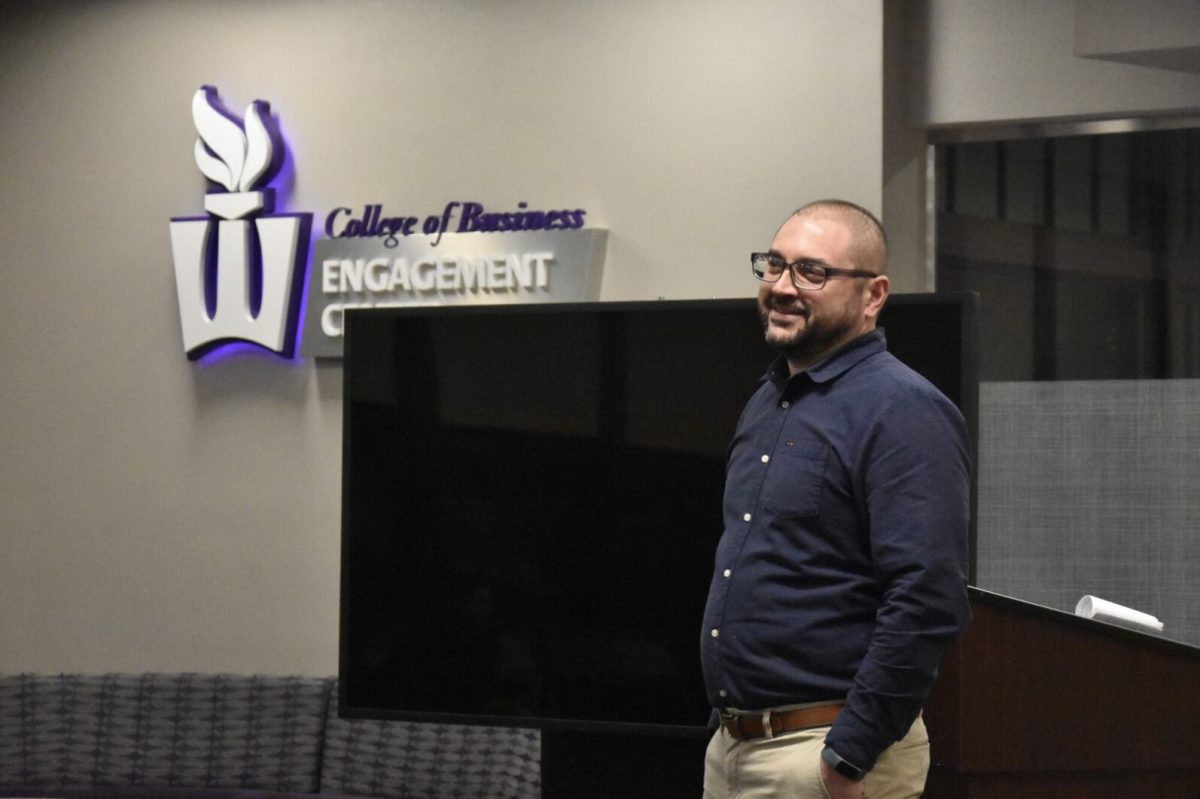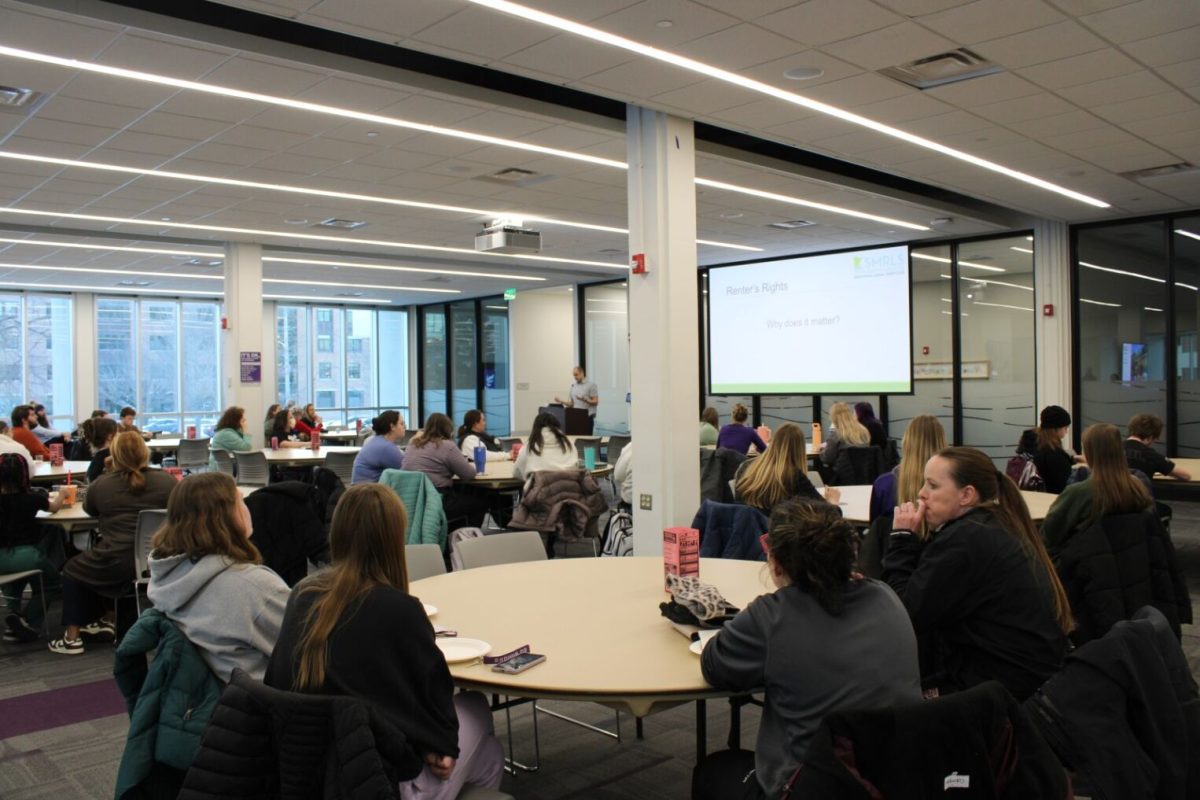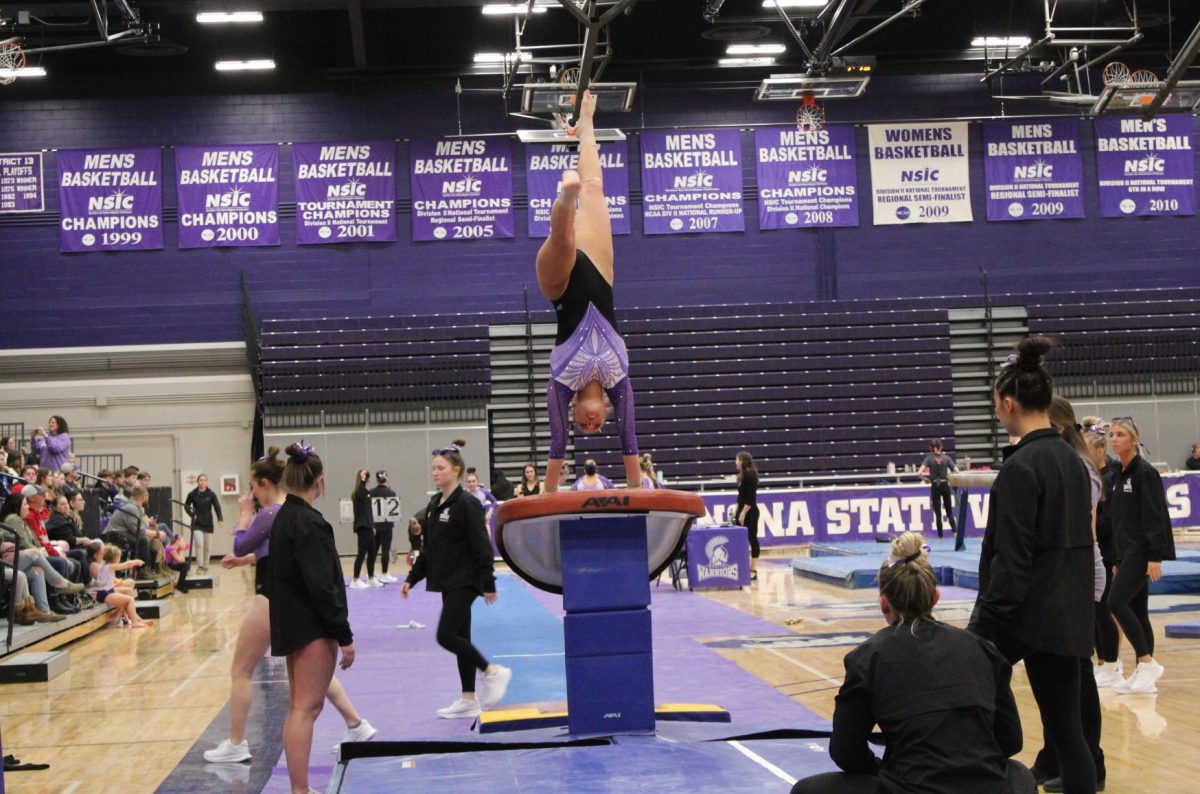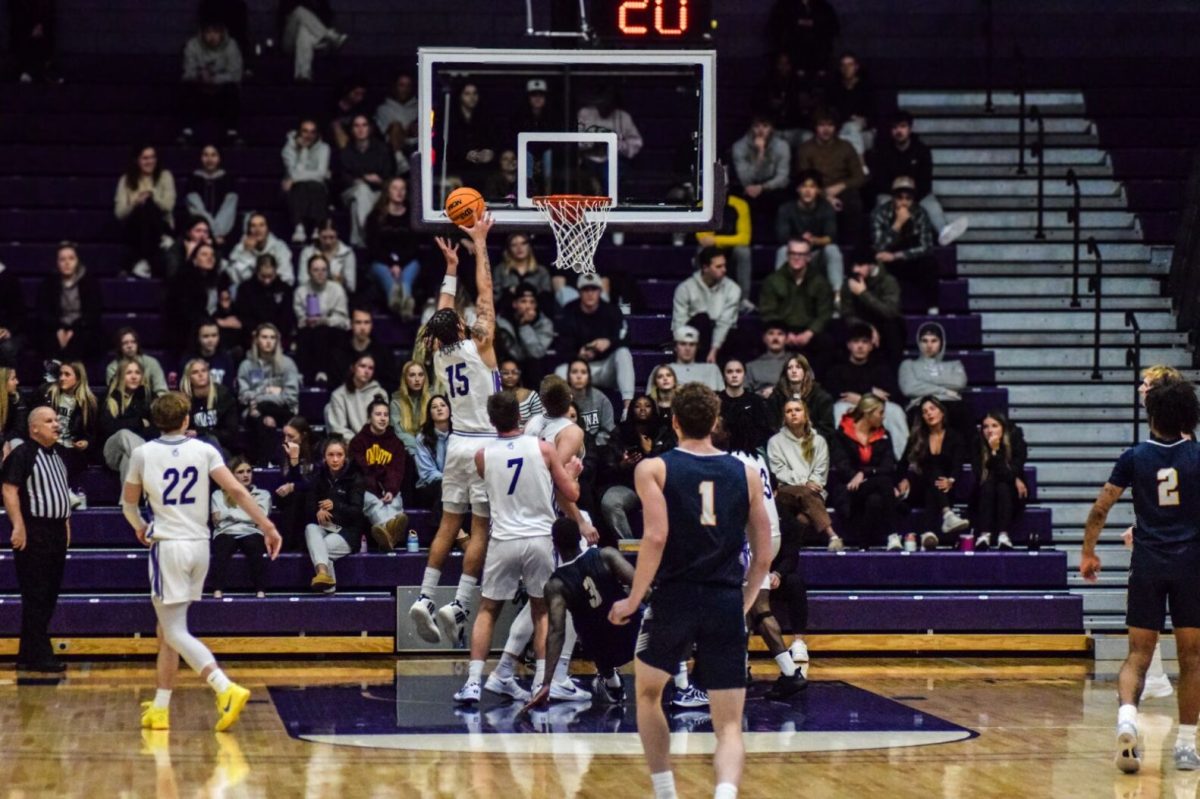Contributed by Alex Paulson
“A community of learners improving our world.” Recently, I have spent many mornings sipping coffee, contemplating this slogan emblazoned on the busiest street in Winona. However, in my experience at Winona State the only word that might be true is italicized. I don’t disagree that we are here to learn, but what learning can be done in an oppressive atmosphere? Are we really equipping graduates with the knowledge and skills to improve our world? This is where Winona State University has failed me and my peers. I must clarify: I say Winona State University, because at the root of it, the institution’s current state of affairs is failing me. I would love to highlight individuals for being steel-bellied advocates or apathetic bureaucrats, but it is the entire institution that is at fault. Besides, throwing people under the bus is not my style, unless it is me, which I am doing by writing this piece. If I were to revise Winona State University’s motto to match the current state of the institution, it would read: “Various groups of people and individuals sans interaction, learning to keep the old-guard status quo in a surpassing and ever-changing world.” I think the Prentiss-Lucas wall would need to be a little longer to fit this more accurate motto, and it frankly isn’t quite as catchy.
My words may seem combative, but that is due to the urgency with which these issues must be addressed. As we depart the anniversary of Dr. Martin Luther King Jr.’s speech, The Fierce Urgency of Now: Beyond Vietnam, I think about how appropriate this excerpt addresses the issues faced at our campus. “We are now faced with the fact that tomorrow is today. We are confronted with the fierce urgency of now. In this unfolding conundrum of life and history, there ‘is’ such a thing as being too late. This is no time for apathy or complacency. This is a time for vigorous and positive action.” My issue with Winona State has been its “blind” acknowledgment of inclusion and diversity issues on our campus. The university as a whole focuses on the bandages it can put on deep, festering wounds. I get frustrated when the campus puts on “Diversity Summits” or proposes talks to start a conversation that they have been “starting” for years. If an engine doesn’t start, it is stalled, and this is where action is at Winona State: stalled. Students aren’t looking for “talks” and “themes” to cover the issues. Students are looking for systemic changes. Spotlighting inclusion and diversity issues for a day, or even a year, won’t resolve the issues reinforced by systems and constructs of oppression. Bandages applied without proper preparation don’t heal a climate that allows people to shoot me dirty looks, call me a fag, or spew homophobia in earshot.
To address these issues the best place to start is where the issues manifest: the student body. Seeing as it is students who experience these issues most frequently due to their overwhelming majority in campus life, taking their recommendations seriously would be a logical course of action. “What do students think would make Winona State University’s climate safer and more inclusive?” When asked this question, droves of students lobby behind having a diversity resource center. A diversity resource center offers students programming and leadership training to make necessary systemic changes. Placing it in a highly visible area brings these issues into constant discussion rather than spotlighted here and there. However, each step of establishing such a resource center has been met by the university committing as little as possible to this student advocated cause. For example, students have asked for funding. Students received funding only to discover it terminates at the end of the semester. This forces students to ask again, but this time clarifying they want sustainable funding. Along the way of asking for funding, students have been asked questions like “Where will this funding come from?” Is it really students’ responsibility to find the funding? Last time I checked students are paying tuition to attend school here, finding funding in a university’s budget sounds like it is someone’s job description. I know, as a student taking 18 credits and working three jobs to help pay for my education, finding funding in an opaque budget is a job I do not have time or the capital. Someone who has assistants for their secretaries and is paid to work on improving student life or ensuring student success may have a little more capacity for the labor. Pay me some money and I will be glad to find that funding.
Another solution with strong student support has been including a biased incidence reporting system. Not only has this been advocated by students but is explicitly stated in the Higher Learning Commission’s recommendations in their last visit to the university. For those of you who are unaware of what the Higher Learning Commission is, they are the body that accredits our university and makes the piece of paper you get at the end of your studies mean something. If the university is not attentively listening to students they are charged to serve, at the very least they should listen to the body that backs up the ethos of their degrees. Many underrepresented students, and the broader student body, have faced a lack of validation when incidents occur. Currently, the university can’t do anything if there are no suspects in a case of verbal abuse or record incidents that do not fit under a definition. Similar systems are in place, but we wouldn’t know do to a lack of transparency. So they simply make no record at all. But the incidents are still important to record. Why? To validate student experiences and simple statistical data to let the university know how they are doing on inclusion and diversity issues. Apparently proof is needed before the university can act, and without systems to collect this data where would we be. I am sure all of you have seen the WSU Cupid page or the Confessions page. Weekly I have seen posts ranging from micro-aggressions to blatant racism or sexism posted on these pages, and those are just online. I won’t start on what I hear and see as I move through campus. Still the university denies the issue. I have heard from student meetings with university representatives where they shut down, silenced, or talked around for four years. The university neatly sweeps their stories under the rug. I have heard too many ridiculous stories about “not having enough evidence” or “not knowing who has the football,” to be swept under the rug any longer. Now I am crawling out from this overstuffed rug, screaming, “INCOMPETENCE!”
If the university can’t appropriately handle inclusion and diversity issues it tells me one of two things: either they don’t care enough, or they are severely incompetent. Because a lack of concern or failing to recognize systems of oppression is the modern age’s discrimination, I will assume incompetence. Let me give a lesson to the university because nothing cures incompetence like a little education (I fully realize the irony in schooling school). I have been doing some independent research on inclusion and diversity issues in higher education. Winona State University is decades behind its sister schools. St. Cloud has had a diversity resource center for approximately 20 years with a separate LGBT resource center, Moorhead offers Chicano Latino Studies, African American Studies, and American Indian Studies as academic programs, even Mankato has a biased incidence reporting system. We are also the last school to turn in our Diversity Plan by eight years! I am being more than fair staying within the MNSCU system. Compared to national standards, Winona State University’s attempts and timing are laughable. I repeat, either the university does not prioritize inclusion and diversity issues or is incompetent. Including the virtues of inclusion and diversity into the core of the academic climate and curriculum is the main tenant of Inclusive Excellence.
I have been critiqued for not giving solutions or making over-generalizations that will alienate departments and faculty working for diversity causes. Anti-discrimination work is hard, and I don’t mean to slap those in the university engaged in this urgent, uphill work. To them, I am thankful, but no solutions can be achieved without foundational systemic changes. The university can redeem itself by simply changing their tone and prioritizing of these issues. Rather than intimidating students into silence until their four years are up, they can listen to the population of the oppressed. They can focus on healing the wound rather than slapping a bandage on it and waiting for it to fester even worse. They can try to heal the wound and focus on systemic changes, interesting that this wasn’t realized by a nursing school. Regardless of the bandage’s size, it will not heal the wound underneath. Once attention is focused systemic change we will be a community once again. Making these systemic changes will instill the whole student body with the capacity to be more inclusive of the diversity of which they are a part. That, my fellow students, will ultimately be how we will create a community of learners that will improve our world.
-Alex Paulson, acpaulson10@winona.edu, “come at me”








































